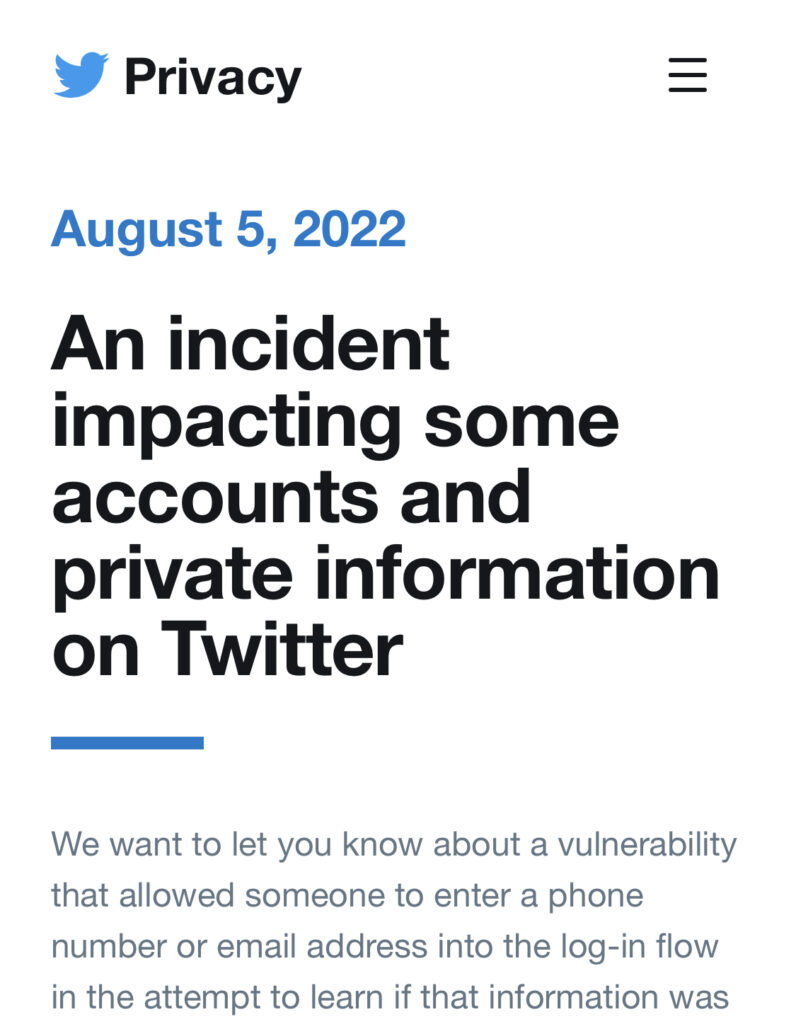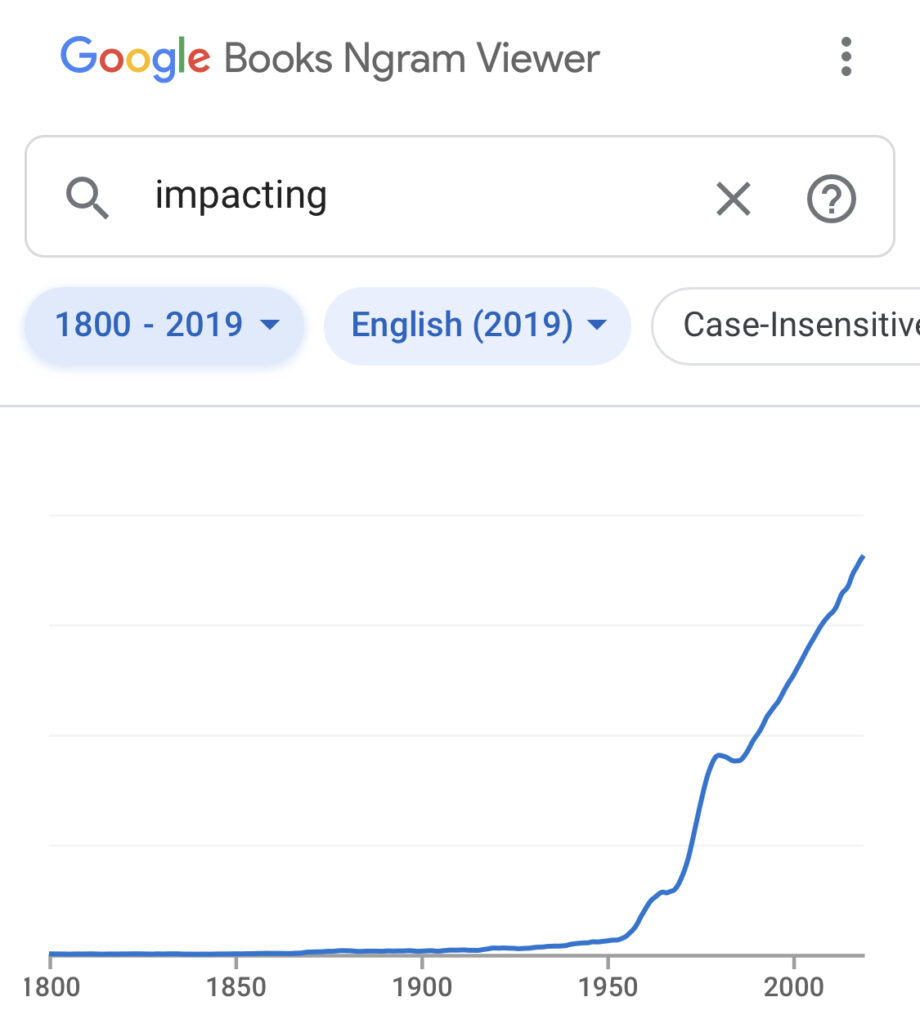The growing use of the word “impact” to speak passively is weakening the English language.
This week, I came across this press release on Twitter’s website:

https://privacy.twitter.com/en/blog/2022/an-issue-affecting-some-anonymous-accounts
The headline non-descriptively refers to ”an incident.” The effect of this incident is unclear. The only clue we have is that the incident is “impacting” ”some” part of Twitter. Given impacts can be positive or negative, and there is very little to Twitter except for accounts and private information, it is completely impossible to gather any meaningful information from this headline.
If the purpose of a headline is to convey what the reader might learn about by reading the associated article, this one fails spectacularly.
But its not just the corp comms robots at Twitter. People are so afraid to make a claim nowadays, even if it’s obviously true. Over the last few years I’ve noticed an increase in this kind of language. And the word ”impact” is often at the center of it.

https://books.google.com/ngrams/graph?content=impacting&year…
People speak of “impacts” or that something will be “impacted”. But they seem to want to avoid saying who or what will be impacted, and how.
“I was impacted by today’s layoffs.” “We expect there to be impacts to website traffic.”
These meaningless words do nothing except to say “something has happened” which puts the reader in the mindset of having to unravel a mystery.
Anytime you write, it’s your job to make yourself understood. I don’t want to have to be Encyclopedia Brown to figure out what you’re trying to tell me.
By the way, a better headline for the Twitter article would have been “Private phone numbers + email addresses leaked for 5M Twitter accounts”.

I run a small SEO consulting business in San Francisco, CA. I like to write a little bit and get in arguments with my friends. It’s the only way I can make sense of the world.
